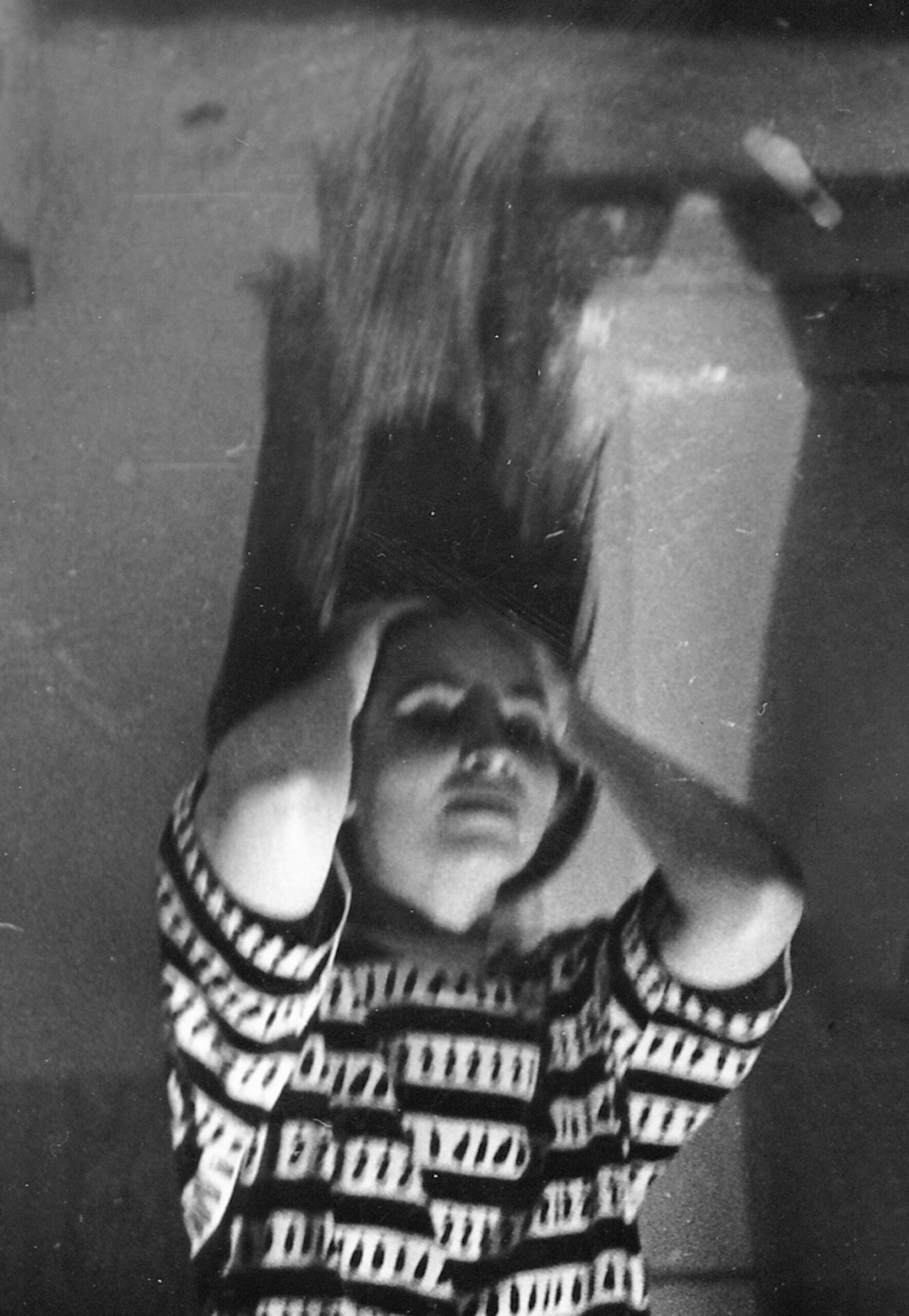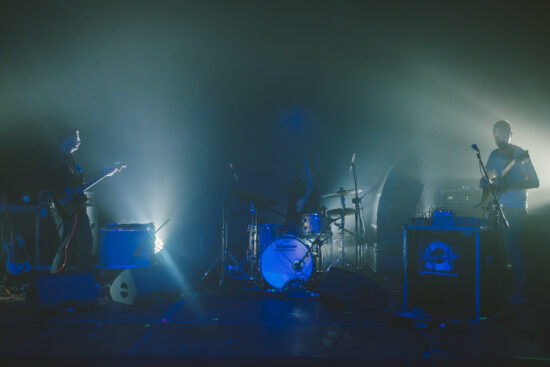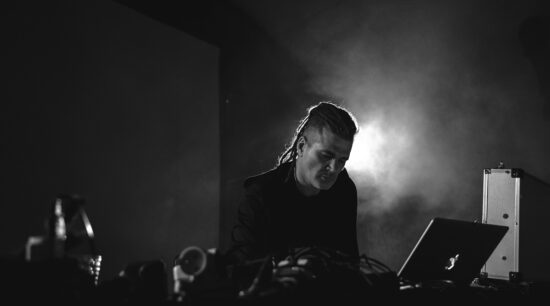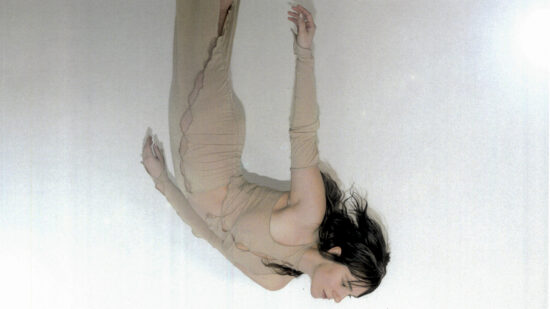Svitlana Nianio strength is in meditative minimalism, and subtle, emotive pieces are timeless, even when listening to what she composed today or thirty years ago.
“Since February 24, 2022, I have mostly been in Kyiv. There is noise from rockets and drones daily, and I’m not a big fan of this noise,” says Svitlana Nianio, a Ukrainian singer and composer, commenting that her native Ukraine was attacked by russia last year. Her music is as far from noise as possible – her strength is in meditative minimalism, and subtle, emotive pieces are timeless, even when listening to what she composed today or thirty years ago. Nianio combines quiet minimalism with vague, slightly abstract influences of Slavic folk, finding herself in cleverly created song forms that are ephemeral and fairytale-like.
After graduating from the music academy in 1986, she formed the band Sugar White Death with violinist Tamila Mazur, guitarist Jevhen Taran, and pianist Oleksandr Kochanovskyj. Their first official album was Manirna Muzyka (“mannered music” in English), which reflected the nature of their music and referenced what Nianio was doing on her later records. Their compositions were characterized by glamour, a sometimes cabaret sound and Brechtian mood, psychedelic dissonances, and contemporary chamber music elements. The band went on hiatus in 1993, but Nianio didn’t stop composing music. In 1996, she recorded one of the most essential albums in the Ukrainian underground, Znayesh Yak? Rozkazhy, with Oleksandr Yurchenko. They used a minimal approach and recorded the album in an abandoned park in Kyiv, combining the sounds of keyboards and handmade instruments with soprano vocals.
Later, she decided to reduce music as it was complicated to sound well with such a line-up, as she admitted. It’s mainly based on voice, piano, or accordion and may be associated with folk, but it also recalls the achievements of Meredith Monk or Iva Bittová. It is sprinkled with Slavic folk influences with hints of minimal music like La Monte Young or Terry Riley – especially that branch open to meditation and trance. After releasing Kytytsi in 1999, she didn’t release any new music for nearly two decades, although growing interest in her music has resulted in a series of reissues of her recordings. Skire reissued Lisova Kolekciya in 2017, and three years Znayesh Yak? Rozkazhy (along with Night School), Koka reissued Kytytsi, and Now So Healthy Music released Frozen Jungle / Sincere Sensation in 2021, recorded by Nianio, Eugene Taran, and GeeNerve.
Nianio does not escalate in sound. Her rhythmic, punctuated songs, somewhat in the vein of folk dances, with a high, clear-sounding voice in a way, may remind one of what Eastern European groups such as Irena & Vojtech Havlovi or Księżyc, who also started in the 1980s/90s and have gained new interest in recent years, were doing with folk-avant-garde influences, sounding medieval and avant-garde in its way at the same time. There are song-like compositions, but built not in simple structures, showing if a more inbred outsider point of view prevailed in Eastern Europe.
This year sheds light on more Nianio music thanks to the reissue of her Transilvania Smile, recorded in 1994, and a brand-new material, Eye of the Sea, recorded remotely in 2020 between Nianio and Tom James Scott, who has cooperated with Andrew Chalk and Timo Van Lujik and founded Skire Records.
The first one resulted thanks to meeting the dancers from the Pentamonia choreographic group when she played in parks and on the streets in Germany in the 90s, just after the collapse of the Soviet Union. “The experiments of the Pentamonia inspired me, and the artists invited me to for cooperation,” she admits now. “In this music, I was attracted by the harmony and balance of means of expression and the bewitching combinations and shimmer of rhythms,” she says. The musical part of the performance was recorded but never released and kept in Svitlana’s archives till now, thanks to the Shukai label.
For Eye of the Sea – recorded remotely in 2020 – Nianio subsequently recorded vocals and additional instrumentation over Scott’s gossamer improvisations. Instead of strangeness due to minimalist accordion or piano playing as on Transilvania Smile, what dominates here is delicacy, slowness, and concentration; time becomes stagnant. The hazy nature of these recordings recalls Erik Satie and Colleen or Sigur Rós – Nianio embellishes piano parts with lyrics and additional instruments, giving them a liturgical aspect.
“Perhaps the manner of performing melodies and some combinations of timbres may be associated with folklore influences,” she admits. The Ukrainian composer melts local folk sounds with spirited piano and harmonium improvisations, whereas her vocals recall Julia Holter or Cucina Povera. “Some of the lyrics of my compositions may resemble fragments of scary ballads or frightening stories,” she adds.
Especially the reissued recording sounds mystical, but it doesn’t feel that the music has aged. The title was inspired by Nianio’s time spent in the Transylvania region, associated with Dracula, recalled for centuries when mentioning victims of failed love. She was playing music there in the 90s and performed in small hotels. A minimalist album captivates with the unusual trance-like quality that Nianio creates by playing accordion, piano, and singing. Sometimes she builds quasi-folk melodies on the accordion – the instrument speeds up, later slows down, and sometimes it sounds like a pipe organ. The composer achieves the minimalism of playing rhythmic, punctuated melodies, somewhat in the spirit of folk dances, with a high, clear-sounding voice. In a slight outsider perspective and drone-like vocals, Nianio melts local folk sounds with spirited piano and harmonium improvisations.The title refers to Hungarian fairy tales, whereas Nianio sings in Ukrainian.
Thanks to Nianio’s minimal approach, it doesn’t matter when you listen to her music. It could be early post-Soviet Eastern Europe in 90s or the beginning of the 21st-century third decade, somewhere between war escalating in Europe and climate changes. She did not stop composing even during the full-scale war unleashed in Ukraine last year. “I look for some lightness and strange beauty of combinations and timbres of sounds,” she says. Which never ceases to surprise – to find a balance in today’s modern world, listening to her compositions is an excellent way to start.
SVITLANA NIANIO Transylvania Smile, Shukai
SVITLANA NIANIO & TOM JAMES SCOTT Eye of the Sea, Skire




